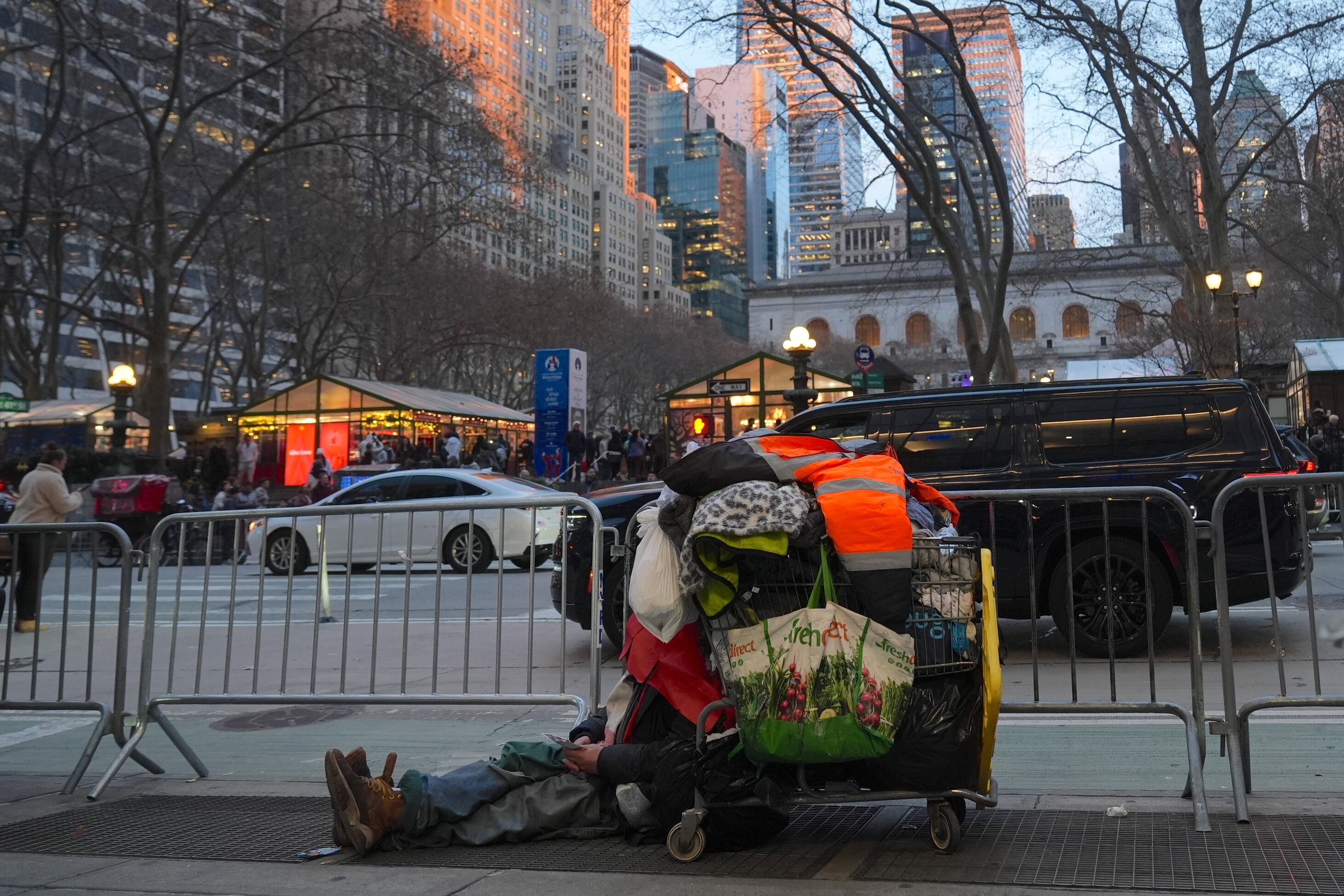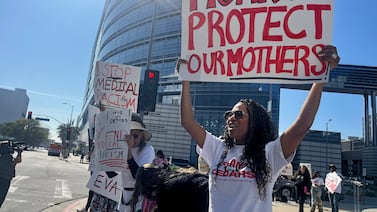Public health, explained: Sign up to receive Healthbeat’s free New York City newsletter here.
This legislative session, the debate over how to address New York’s mental health crisis has found a new center of gravity: Gov. Kathy Hochul’s proposal to expand the state’s criteria for involuntary psychiatric commitment.
Hochul has presented the move as a way to stem city violence and connect severely mentally ill people to treatment. The state’s current mental hygiene law says that involuntary commitment requires someone to be at risk of harm to themselves or others. Under Hochul’s proposal, the law would be expanded to include someone who cannot meet basic needs like food, shelter and clothing — a codification of guidance her administration released in 2022.
In her State of the State address last month, Hochul said her proposal is “about having the humanity and the compassion to help people incapable of helping themselves.” She has also proposed expanding Kendra’s Law, which governs court-ordered mental health services implemented through Assisted Outpatient Treatment programs.
New York City Mayor Eric Adams — who has long pushed for the increased use of involuntary commitment — has expressed support for Hochul’s efforts, saying they “share the same North Star” of keeping New Yorkers safe. Last year, involuntary transports to hospitals occurred more than 7,700 times in New York City, most initiated by law enforcement, according to a recent report released by the Mayor’s Office of Community Mental Health.
But Hochul’s involuntary commitment proposal has garnered pushback from some mental health advocates, legal experts, and state lawmakers, who question whether the expanded criteria would criminalize homelessness, whether it would be effective in helping those with severe mental health issues and social vulnerabilities, and whether adequate community-based services exist to support individuals upon discharge.
Hochul has also proposed other mental health measures in her executive budget, including investments in street medicine and street psychiatry, establishing more mental health clubhouses, creating spaces for mobile outreach teams in some subway stations, and $160 million for a new 100-bed forensic inpatient unit on Wards Island. Many of Hochul’s proposals build on her $1 billion, multi-year plan to strengthen New York’s mental health system, which she announced in 2023.
But during Wednesday’s joint legislative budget hearing on mental hygiene in Albany, it was her proposal on involuntary commitment that took center stage.
State commissioner pressed on proposal
Sen. Samra Brouk, a Rochester Democrat and chair of the Senate Committee on Mental Health, pressed Dr. Ann Marie T. Sullivan, commissioner of the state Office of Mental Health, on whether the expanded criteria could be interpreted to mean that anyone who is unhoused could be hospitalized against their will.
“How do you think we avoid this from being a sweeping change, so that we are essentially saying, homelessness now equals: You could be involuntarily committed?” Brouk asked.
In response, Sullivan stressed that homelessness would not equate to involuntary commitment, and that the expanded eligibility would apply to a “very small, select group of individuals who are at very substantial risk to physical harm because they are unable to take care of their daily needs.”
Other lawmakers, and some legal and mental health advocates who testified, questioned whether New York’s mental health care system would be able to adequately care for those involuntarily committed under expanded criteria, including after discharge.
Assemblymember Jo Anne Simon, a Brooklyn Democrat and chair of the Assembly Committee on Mental Health, asked Sullivan whether hospitals had the capacity to accept additional patients who are involuntarily admitted.
Sullivan testified that the statewide occupancy rate for adult psychiatric services stands at about 80%, adding, “there’s room within the community-based hospital system for the small increase in individuals.”
“What I see is the problem is, once they get into a hospital, whether voluntary or involuntary, they’re not getting the care they need, and then they’re being released,” said Sen. Liz Krueger, a Manhattan Democrat and chair of the Finance Committee, who noted that her district includes transit hubs like Penn Station and Grand Central, where unhoused people tend to congregate.
Sullivan pointed to Hochul’s efforts to expand mental health services beyond hospital systems, and noted that under the involuntary commitment proposal, hospitals would have to communicate with an individual’s provider and coordinate a discharge plan.
“We’re going to make sure the hospitals work with us, with the community-based providers, to have really comprehensive discharge plans,” Sullivan told lawmakers.
Some advocates who testified during the hearing asserted that Hochul’s proposal would further stigmatize and criminalize those with severe mental health issues and would not ultimately help them achieve lasting treatment.
Ruth Lowenkron, director of disability justice at the New York Lawyers for the Public Interest, stressed that “forced treatment is not treatment” and urged lawmakers to focus instead on voluntary, community-based programs that have success in treating those with severe mental health issues.
“Don’t go to coercion. It really is not going to get it done,” Harvey Rosenthal, CEO of the Alliance for Rights and Recovery, a mental health advocacy organization, urged lawmakers. “I know the public is afraid, but stand tall with us, please.”
Eliza Fawcett is a reporter covering public health in New York City for Healthbeat. Contact Eliza at efawcett@healthbeat.org .







